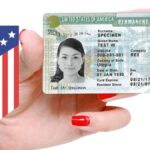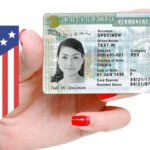USA Visa Bond Policy
The U.S. State Department has proposed a significant change to the visa application process, targeting countries with high visa overstay rates. Under the new USA visa bond policy, applicants seeking business or tourist visas may be required to post a refundable bond of $5,000, $10,000, or $15,000 before being granted entry into the United States. This pilot program is designed to deter visa overstays and ensure compliance with immigration rules.
According to the policy preview posted on the Federal Register, the 12-month pilot program will affect nationals from countries identified as having high visa overstay rates, poor internal documentation security, or those offering citizenship-by-investment with no residency requirement. These individuals, if found eligible for the USA visa bond policy, would have to post the financial guarantee as part of their visa approval process.
This initiative is seen as part of a broader strategy by the Trump administration to increase accountability in the visa system. The USA visa bond policy follows a series of other immigration tightening measures, such as mandatory in-person interviews for certain visa renewals and stricter documentation checks for applicants under the Visa Diversity Lottery program.
One of the key motivations behind the USA visa bond policy is to prevent the U.S. government from bearing financial risks in case an individual violates the terms of their visa. By requiring a security bond, the State Department hopes to discourage potential overstayers who might otherwise ignore the duration and conditions of their authorized stay.
The proposed rule clarifies that the bond amount can vary based on each applicant’s individual circumstances. While $15,000 is the maximum cap under the USA visa bond policy, some may only be required to pay $5,000 or $10,000 depending on their risk profile. There is also a provision for waiving the bond in specific cases where the applicant can demonstrate strong ties to their home country or has a clean immigration history.
It is important to note that the USA visa bond policy will not apply to travelers from the Visa Waiver Program (VWP) countries. These include the majority of European nations as well as select countries from Asia, the Middle East, and other regions that maintain strong diplomatic and security ties with the U.S. Under the VWP, eligible nationals can travel to the United States for business or tourism without a visa for up to 90 days.
Historically, visa bonds have been proposed several times but were never enforced due to concerns about administrative difficulties and potential public backlash. Critics argued that managing the collection and return of such bonds could place a burden on both the applicants and consular officers. The new USA visa bond policy, however, challenges this viewpoint, stating that these concerns lack recent evidence or implementation-based experience.
The new policy may spark debate among immigrant rights groups and international communities. Some experts believe that the USA visa bond policy could unfairly target developing nations and make U.S. travel unaffordable for many legitimate visitors. However, supporters argue that this measure promotes lawful behavior and protects the integrity of the U.S. immigration system.
The USA visa bond policy also aims to reinforce screening and vetting procedures






